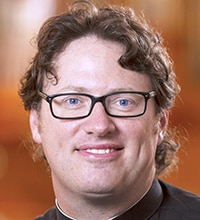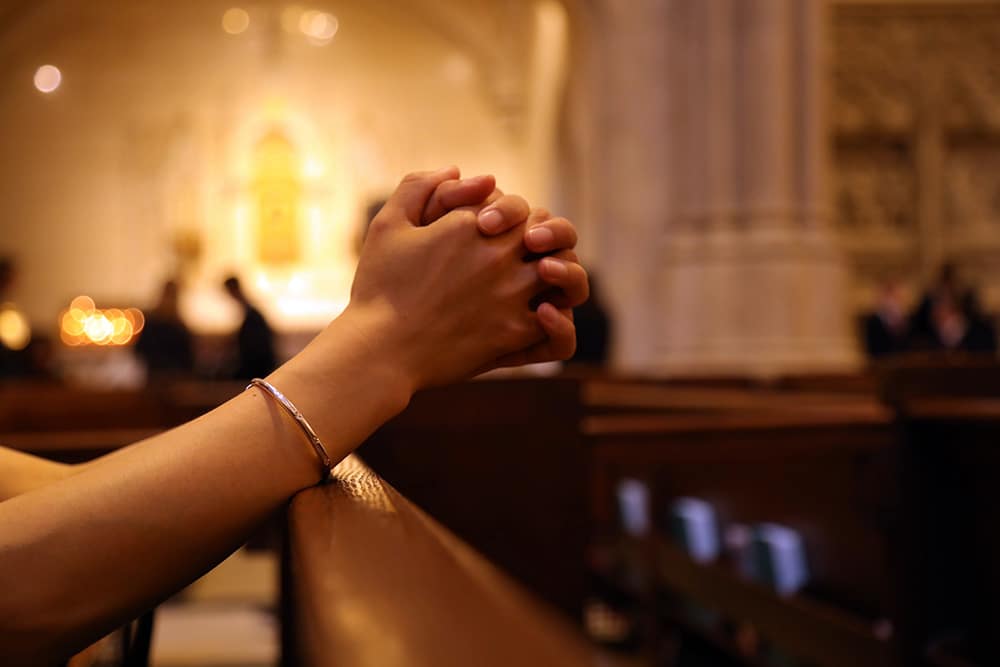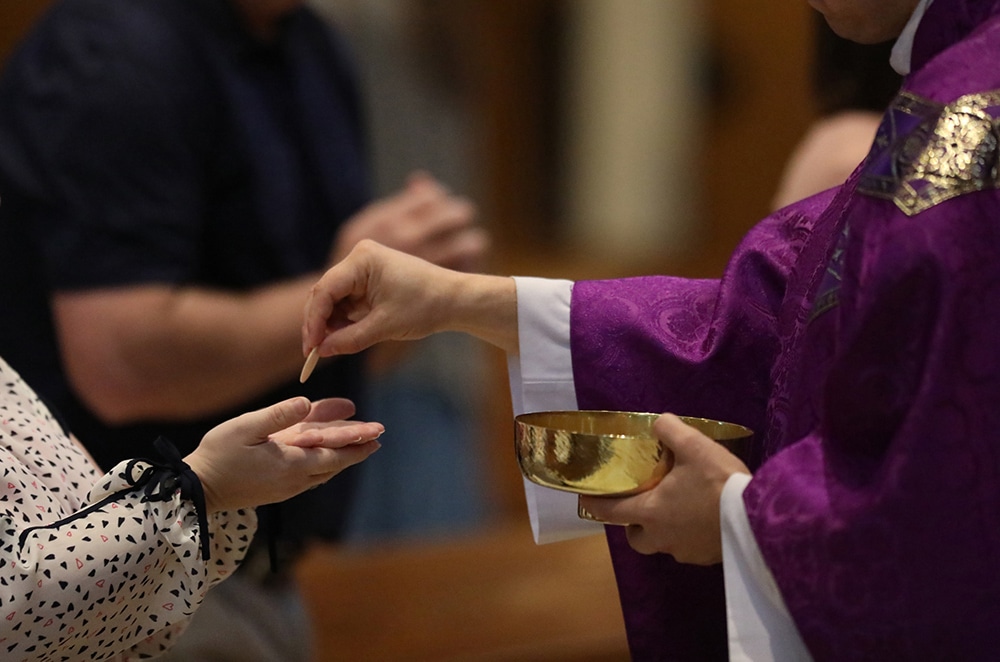 “It is not the mote from one’s neighbor’s eye that the house of God can be built,” Paul Claudel said, “but with the beams one takes out of one’s own.”
“It is not the mote from one’s neighbor’s eye that the house of God can be built,” Paul Claudel said, “but with the beams one takes out of one’s own.”
He was a strange poet; it’s a beautiful metaphor, an image upon image. The “wooden beams” Jesus talked about, those which belong only to us, those in our eyes, that’s how we build the Church — only with the grace given freely to our repentance and not with the forced repentance we extort from others or the false grace we think we control. This is an important lesson. Jesus wants his disciples to lead, but not like the Pharisees do. And so he insists that his disciples’ holiness is genuine, not just external. Which means always beginning with the self, with one’s own sins and one’s own need of grace.
Which is a good lesson just before Lent, soon to be invited to take up anew the ancient ways of penance, almsgiving and fasting. We, of course, are called to this way of life all year round, yet the Catechism calls Lent an “intense” moment of penance (No. 1438). That’s why it’s good to think about it, why this Sunday’s Gospel is providential. Because it asks us to go back to the basics and think again clearly and simply about what we do when we repent. Because we can sometimes mess it up.
| February 27 – Eighth Sunday in Ordinary Time |
|---|
|
Sir 27:4-7 |
Repentance, in theory at least, we understand well enough. It’s necessary; we know this. John the Baptist’s preaching was necessary. All the prophets’ preaching was necessary. God’s nearness demands preparation. We must, as Ezekiel said and as John the Baptist enacted, be sprinkled clean of all our uncleanness if we want to see God at all (Ez 36:25). St. Basil the Great said once that the soul is like a mirror; it’s meant to reflect the sun. But before the soul can shine, it must first be cleansed — the mud and dirt scraped away. All of this we understand. We’re even grateful for it. Because we know we need such grace, and we know we’re not ready. That’s clear.
But the temptation to repent, as Dietrich Bonhoeffer put it, with a “sidelong glance” at “fellow offenders” is always present, always strong. And doing so always corrupts repentance in some way. Not only is it judgmental, it introduces a self-consciousness that turns penance into performance. Again, this was Jesus’ fear, that his disciples would become like the Pharisees, merely externally holy. The disciples of Jesus are to be genuinely holy, perfect as the heavenly Father is perfect (cf. Mt 5:48). But such holiness begins with the self, not with others; it begins with the confession and absolution of one’s own sins, not others’ sins. When you go to confession, confess your sins — not your husband’s sins, your wife’s sins, your children’s sins, your neighbor’s sins. Eyes on your own paper — that’s the lesson. It’s a simple reminder but a good one just before Lent. We’re invited to repent, but only genuinely. And that means realizing each of us has enough sins to deal with on our own.
St. Benedict wrote in his Rule, “Do not aspire to be called holy before you really are, but first be holy that you may more truly be called so” (Rule 4). It is a good thing to aspire to holiness — necessary, in fact. But Jesus’ teaching that holiness begins by looking inward rather than outward, that it begins with a reckoning of one’s own sins first, is unavoidably true. Only by the genuine repentance of the self and self only — humble and judgeless — will the good fruit Jesus mentioned ever grow from within us, holy fruit, natural and not processed. This is the purity Lent offers. That is, if our penance is pure. Which is a grace we can receive only if we look first at God and ourselves truthfully before we look at anyone else.
Father Joshua J. Whitfield is pastor of St. Rita Catholic Community in Dallas and author of “The Crisis of Bad Preaching” (Ave Maria Press, $17.95) and other books.







